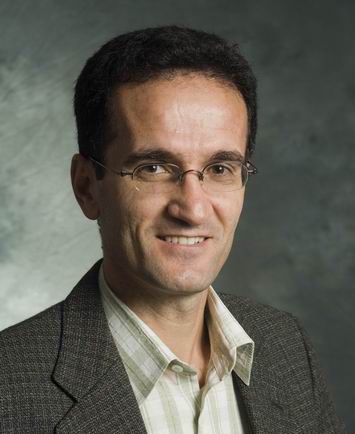The Fifth IASTED Asian Conference on
Power and Energy Systems
AsiaPES 2012
April 2 – 4, 2012
Phuket, Thailand
TUTORIAL SESSION
Frequency Control in Modern Power Systems: Challenges and New Perspectives
Duration
3 hours
Abstract
Frequency control is one of the important control problems in interconnected power system design and operation, and is becoming more significant today due to the increasing size, changing structure, emerging renewable energy sources and new uncertainties, environmental constraints, and the complexity of power systems. The frequency in a power system is usually under control using well-known automatic generation control (AGC) loop. AGC markets require increased intelligence and flexibility to ensure that they capable to maintain generation-load balance, following serious disturbances.In a conventional power system, the majority of supply-demand balancing is achieved by controlling the output of dispatchable generation resources to follow the changes in demand, and typically, a smaller portion of the generation capacity in a control area is capable of and is designated to provide frequency regulation service in order to deal with the more rapid and uncertain demand variations provided by renewable energy sources (RESs). Integration of RESs into power system grids have impacts on frequency control as well as other control issues. Increases in distributed generation, microgrids and active control of con¬sumption open the way to new control strategies with a more control hierarchy/intelligence and decentralized property.
The frequency control/AGC systems in a modern power system should handle complex multi-objective regulation optimization problems characterized by a high degree of diversification in policies, control strategies, and widely distribution in demand and supply sources; so it surely must be intelligent. The core of such intelligent system should be based on flexible intelligent algorithms, advanced information technology, and fast communication devices. The frequency control interacting with other ancillary services and energy markets should be also able to contribute to upcoming challenges of future power systems control and operation.
This tutorial provides a thorough understanding of the fundamentals of power system frequency control in the presence of RESs and Microgrids; and addresses several new schemes using robust and intelligent control methodologies. The physical and engineering aspects have been fully considered, and most proposed control strategies are examined by real-time simulations. The tutorial mainly summarizes the long term research and academic experiences of the speaker in three countries of Iran, Japan and Australia.
Objectives
In tutorial, the participants will learn about the most important issues on the frequency control design in modern power systems. Following an overview on the related fundamentals, most of the key issues in the power system AGC/frequency control synthesis, concerning the integration of RESs/DGs and microgrids, that are of most interest today is presented. The need for revising of existing performance standards is emphasized.The participants will find what happens to the frequency control requirements if numerous RESs are added to the existing generation portfolio, how to handle chang¬es in topology caused by switching in the network and how to make the AGC/frequency control system robust and able to take advantage of the potential flexibility of distributed energy resources.
Timeline
This tutorial is designed for 3 hour presentation. Participants of this tutorial will gain an overview on power system frequency control issue and more details on frequency control synthesis concerning new challenges in a modern power system.
10 mins - Power System Control: An Overview
40 mins - Power System Frequency Control: Fundamentals and New Perspectives
50 mins - Frequency Control Concerning Renewable Sources and Microgrids
30 mins - Tea Break
60 mins - Robust and Intelligent Frequency Control Synthesis
20 mins - Conclusions and Discussions
Background Knowledge Expected of the Participants
The tutorial could be useful for engineers and operators in power system planning and operation, as well as academic researchers and university students in electrical engineering. Basic knowledge in power system dynamic and control is preferable, but not necessary.
Qualifications of the Instructor(s)
H. Bevrani received the M.Eng. (Hons.) degree from K. N. Toosi University of Technology, Tehran, Iran, in 1997, and the Ph.D. degree from Osaka University, Osaka, Japan, in 2004, both in electrical engineering. From 2004 to 2006, he was a Postdoctoral Fellow at Kumamoto University, Kumamoto, Japan. From 2007 to 2008, he was a Senior Research Fellow at Queensland University of Technology, Brisbane, Qld., Australia. In 2009 and 2011 he has been invited as visiting professor to Kumamoto University and Kyushu Institute of Technology (Japan), respectively.Currently, he is an associate professor at University of Kurdistan. His special fields of interest include intelligent and robust control applications in Power system and Power electronic industry. He has published 2 books, 6 book chapters and about 100 international journal and conference papers. He is a senior member of Institute of Electrical and Electronics Engineers (IEEE), member of the Institute of Electrical Engineers of Japan (IEEJ) and the Institution of Engineering and Technology (IET).

H. Bevrani was born in Kurdistan, Iran. He received Ph.D. degree from Osaka University, Osaka, Japan, in 2004, in electrical engineering. From 2004 to 2006, he was a Postdoctoral Fellow at Kumamoto University, Kumamoto, Japan. From 2007 to 2008, he was a Senior Research Fellow at Queensland University of Technology, Brisbane, Australia. From 2000, he has been an academic member of University of Kurdistan. From 2009, he was working as a professor in Kumamoto University. His special fields of interest include intelligent and robust control applications in Power system and Power electronic industry. Prof. Bevrani is a senior member of Institute of Electrical and Electronics Engineers (IEEE), member of the Institute of Electrical Engineers of Japan (IEEJ) and the Institution of Engineering and Technology (IET).













